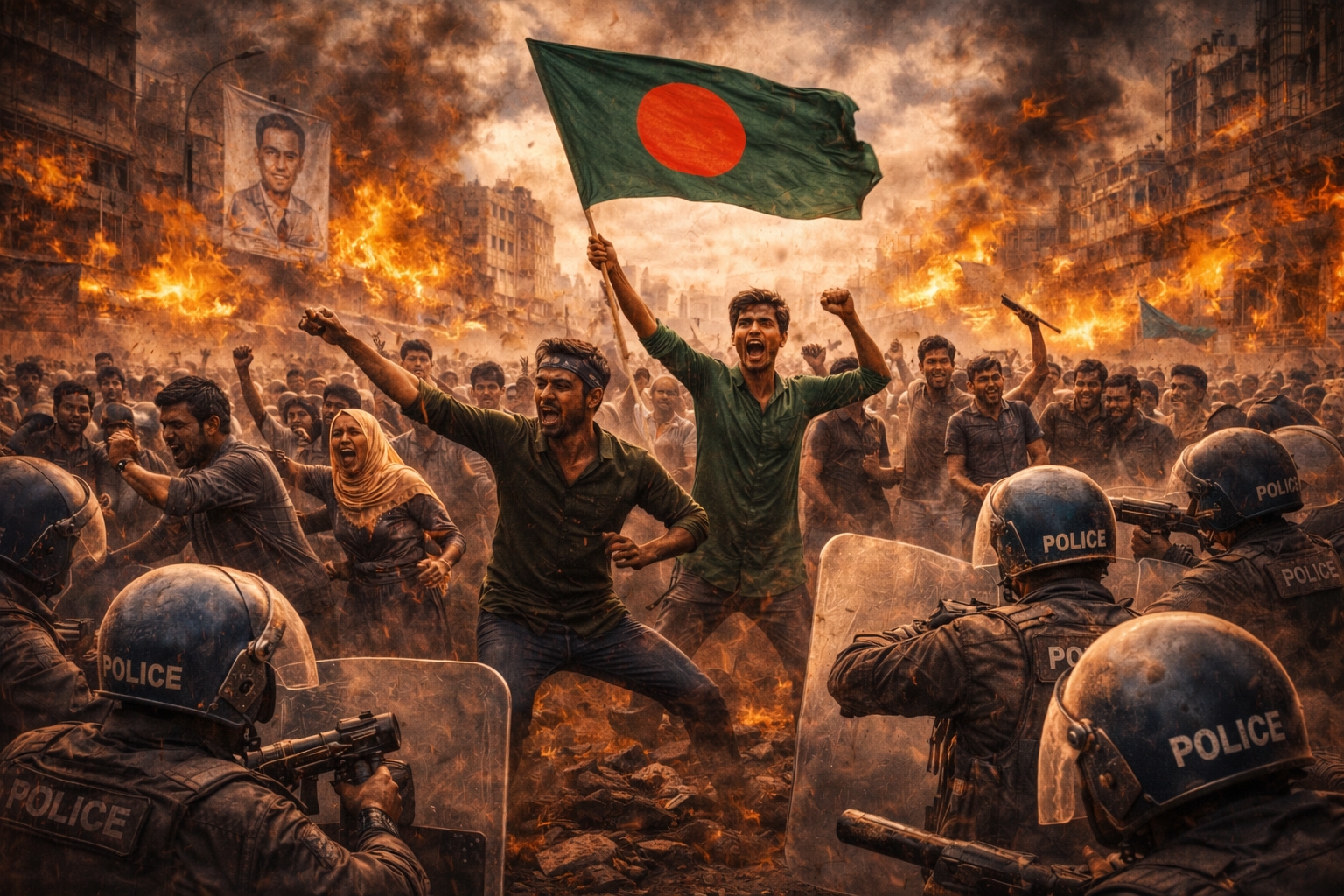Dhaka convictions open old wounds
Empowering Weak & OppressedShafiqul Islam
Sha'ban 27, 1419 1998-12-16
World
by Shafiqul Islam (World, Crescent International Vol. 27, No. 20, Sha'ban, 1419)
Far from closing the book on acrimonious debate to move forward, the ruling Awami League party in Bangladesh insists on opening old wounds. Born in blood, sweat and tears, Bangladesh is not to be allowed to put revenge politics behind it, as the November 8 verdict against 15 former army officers showed.
In delivering the verdict against the 15 accused (19 altogether but four were acquitted), judge Kazi Golam Rasul sentenced them to death by firing squad (only four are in custody). A total of 19 persons - 18 army personnel and one civilian - were accused of killing Shaikh Mujibur Rahman and 11 members of his family on August 15, 1975. Khan Saifur Rahman, the lead defence lawyer, announced even before the judge had read his verdict that the defence would appeal against the sentences to higher courts.
Given the nature of appeal procedures and disruptive politics in Bangladesh, some observers believe the accused will not be executed. They say that the Awami League government might be driven from power through street protests by the opposition before the legal process is completed. But given the volatile nature of the people and the vengeful style of politics, there are fears that the accused might be killed in jail regardless of the outcome of legal battles.
Shaikh Mujib, the country’s founding father and first president, who later became prime minister, was gunned down by his own army officers after he became autocratic and his family started to treat the country as its private fiefdom. Shaikh Hasina Wajed, the current prime minister, and her sister Rehana Siddiqui - daughters of Shaikh Mujib - are the only two surviving members of the family. They were away from the country at the time.
Shaikh Mujib had become quite unpopular in Bangladesh within a few years of assuming power. Many people felt betrayed. Promises made during the heat of the campaign against what he called exploitation by the ‘Punjabi-dominated West Pakistan,’ were never fulfilled once he assumed power in Bangladesh. Created through Indian military invasion in December 1971, Mujib and his colleagues in the Awami League became the new oppressors.
It was in this environment that a group of army officers staged a coup and eliminated Mujib and his family from the scene. The act was hailed at the time and the army officers were seen as liberators. It was also for this reason that the parliament in the post-1975 period passed an act, granting indemnity from prosecution to those involved in the coup.
When Hasina Wajed came to power in early 1996, one of her first acts was to go after the killers of her father. On August 14, 1996, police arrested three persons, colonel (retired) Syed Farookur Rahman, lieutenant colonel (retired) Sultan Shahriar Rashid Khan and former state minister Taheruddin Thakur, in connection with Mujib’s murder. Sixteen other accused were already out of the country - two of them, Majmul Ansar and Kismat Hashim, currently reside in Canada.
It is interesting to note that even before any charges were brought against the accused, they were taken into police custody. It was not until three months later, on November 12, 1996, that the Awami League dominated parliament scrapped the Indemnity Act which had barred the trial of the 1975 coup leaders. This was immediately challenged in court, ultimately ending in the supreme court. The petition was finally dismissed on March 2, 1988 but the trial of the accused had continued even before this verdict.
While the trial officially opened on March 12, 1997, it was not until April 7 that the court indicted the accused. However, the trial had to be adjourned abruptly on the first day of hearing (April 21) when a defence lawyer introduced a ‘no-confidence’ motion against the judge. This was rejected by the high court as were a number of other objections raised by other defence lawyers during the course of the trial.
There were a number of bizarre acts along the way, reflecting the political nature of the trial. Zobaida Rashid, wife of one of the accused not present in the country, was also indicted. She challenged her indictment in the high court leading to the suspension of the trial for one month. On July 6, 1997, the high court acquitted Zobaida Rashid of the charges thereby enabling the trial of the remaining to proceed.
The Hasina Wajed government has been trying to bring the other accused back to Bangladesh but with limited success. Major (retired) Bazlul Huda, one of the accused, was extradited from Thailand after an extradition treaty with Dhaka was signed on July 9, 1998, a few weeks before the trial formally ended. The major was flown to Dhaka the day the verdict was handed down.
Muslimedia: December 1-15, 1998



